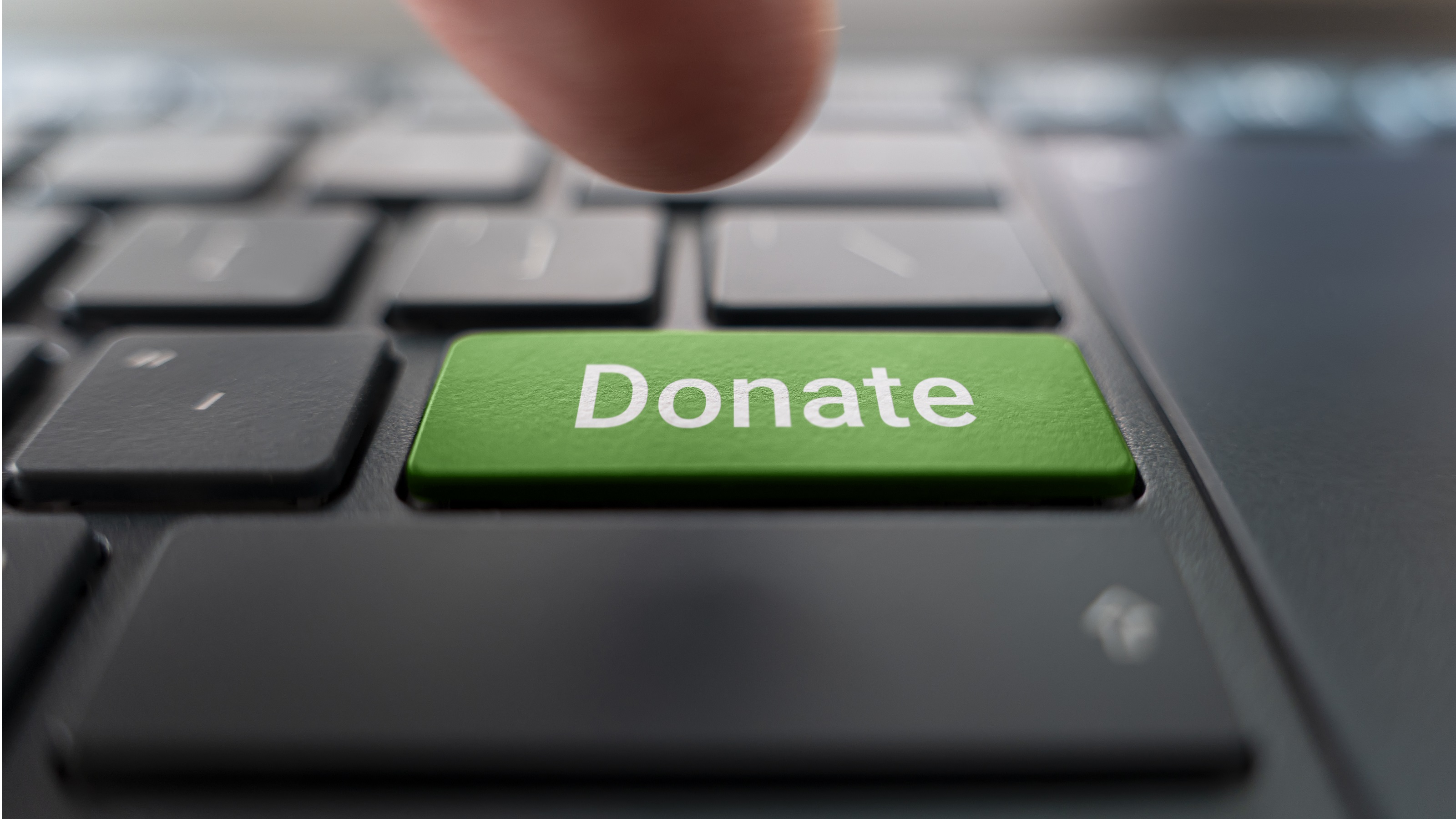Three Ways to Maximize Your International Charitable Giving
With humanitarian crises growing, financial support is much needed and easily provided, but charitable givers should do their homework to ensure their donations go to trusted entities.


Profit and prosper with the best of Kiplinger's advice on investing, taxes, retirement, personal finance and much more. Delivered daily. Enter your email in the box and click Sign Me Up.
You are now subscribed
Your newsletter sign-up was successful
Want to add more newsletters?

Delivered daily
Kiplinger Today
Profit and prosper with the best of Kiplinger's advice on investing, taxes, retirement, personal finance and much more delivered daily. Smart money moves start here.

Sent five days a week
Kiplinger A Step Ahead
Get practical help to make better financial decisions in your everyday life, from spending to savings on top deals.

Delivered daily
Kiplinger Closing Bell
Get today's biggest financial and investing headlines delivered to your inbox every day the U.S. stock market is open.

Sent twice a week
Kiplinger Adviser Intel
Financial pros across the country share best practices and fresh tactics to preserve and grow your wealth.

Delivered weekly
Kiplinger Tax Tips
Trim your federal and state tax bills with practical tax-planning and tax-cutting strategies.

Sent twice a week
Kiplinger Retirement Tips
Your twice-a-week guide to planning and enjoying a financially secure and richly rewarding retirement

Sent bimonthly.
Kiplinger Adviser Angle
Insights for advisers, wealth managers and other financial professionals.

Sent twice a week
Kiplinger Investing Weekly
Your twice-a-week roundup of promising stocks, funds, companies and industries you should consider, ones you should avoid, and why.

Sent weekly for six weeks
Kiplinger Invest for Retirement
Your step-by-step six-part series on how to invest for retirement, from devising a successful strategy to exactly which investments to choose.
When disaster strikes, our instincts turn toward helping those in need. Indeed, during the height of the COVID pandemic, generosity was ample as neighbor helped neighbor and worked within their means to support nonprofits and causes they held dear. With international warfare in Ukraine and the Middle East, many of us are compelled to help however we can.
Whether thousands of miles away or the next town over, financial support is often what's most needed and is what can most easily be provided during times of crisis.
When considering giving to international organizations, investors must be intentional to ensure that their donations are being put to work with the greatest impact for both parties. As you navigate your personal responsibility and calling, these tips can help in the months and years ahead.
From just $107.88 $24.99 for Kiplinger Personal Finance
Become a smarter, better informed investor. Subscribe from just $107.88 $24.99, plus get up to 4 Special Issues

Sign up for Kiplinger’s Free Newsletters
Profit and prosper with the best of expert advice on investing, taxes, retirement, personal finance and more - straight to your e-mail.
Profit and prosper with the best of expert advice - straight to your e-mail.
Tip #1: Don’t give haphazardly
If you’ve visited a grocery store over the past few years, you’ve borne witness to the increase of round-up donations at the cash register. Sure, a few cents here and there won’t impact your bottom line, but does it really make a big impact on the other end?
Alas, the need remains great, but the trend lines are down. According to the Giving USA 2023: The Annual Report on Philanthropy for the Year 2022, annual giving in the U.S. fell 3.4% in 2022 in current dollars and 10.5% after adjusting for inflation.
As investors weigh the benefits of transferring capital to worthy 501(c)(3)s, or those outside of the United States, they must proceed with caution. When giving internationally, it's important to determine that the organizations in question have an American Friends designation, or a U.S. affiliate of the foreign charity. The designation ensures that the organization is in good standing with the United States government and that tax benefits are accounted for on the investor side.
As with your overall investment strategy, transparency is important and due diligence reigns supreme. Give with confidence.
Tip #2: Maximize your impact
Familiar with DAFs?
Donor-advised funds (DAFs) are becoming increasingly popular as a seamless way for investors to contribute to charities in good faith, while immediately reaping the tax benefits. According to the National Philanthropic Trust, there are over 1.2 million DAFs already established in the United States. Fidelity, Schwab, Vanguard and more operate DAFs with tiered fee structures centered around AUM (assets under management).
Many employers also match donations, so it's worth contacting your HR department to better understand the philanthropic benefits that they can extend on top of your own. In times of global need, conduct some research to better understand if your dollars can go further with mega donor matching programs.
Tip #3: Consider a philanthropic strategy
Passionate gifters should work with their advisers to build a philanthropic strategy that is aligned with their values and legacy.
Taking a close look at the causes that are dear to your heart, the value of the overall impact you’re willing to make and how involved you want to be in the process are all important considerations.
A philanthropic strategy is beneficial for the gifter, as well as the charitable organization. These charities need funds all year round, not just around the holidays or when disaster strikes. Creating a strategy can ensure your funds are being maximized, and you are also benefiting from a tax perspective.
If you have questions about reputable organizations to donate to, look to trusted sources like GuideStar or Charity Navigator to better ascertain their credibility and accountability standards.
The bottom line
Is it wrong to want to give one-off donations? No. But if you want to make a bigger impact, think more strategically.
Smart, targeted grants to international organizations and on a long-term basis can change the way the world operates. We’re seeing it in real time. Ensure that your charitable giving is working for you, not against.
related content
- Volunteering and Donating Can Deliver Feel-Good and Tax Benefits
- DAFs vs. Private Foundations: Which Giving Strategy Is Right for You?
- How to Find Room for Philanthropy Despite Challenging Times
- Charitable Giving Strategies for Not-as-Wealthy Donors
- Which Charitable Giving Archetype Are You?
Profit and prosper with the best of Kiplinger's advice on investing, taxes, retirement, personal finance and much more. Delivered daily. Enter your email in the box and click Sign Me Up.

Peter J. Klein, CFA®, CAP®, CSRIC®, CRPS®, is the Chief Investment Officer and Founder of ALINE Wealth, a wealth management firm that specializes in providing clients with financial planning advice for every stage of their lives. Along with Peter’s deep financial wisdom, he adds considerable acumen in philanthropy, helping clients navigate family trusts, institutions, and nonprofits.
-
 Are You 'Too Old' to Benefit From an Annuity?
Are You 'Too Old' to Benefit From an Annuity?Probably not, even if you're in your 70s or 80s, but it depends on your circumstances and the kind of annuity you're considering.
-
 Seeing Retirement Ahead? Why Your 50s Will Be So Significant
Seeing Retirement Ahead? Why Your 50s Will Be So SignificantThis is the perfect time to assess whether your retirement planning is on track and determine what steps you need to take if it's not.
-
 Your Retirement Isn't Set in Stone, But It Can Be a Work of Art
Your Retirement Isn't Set in Stone, But It Can Be a Work of ArtSetting and forgetting your retirement plan will make it hard to cope with life's challenges. Instead, consider redrawing and refining your plan as you go.
-
 Are You 'Too Old' to Benefit From an Annuity?
Are You 'Too Old' to Benefit From an Annuity?Probably not, even if you're in your 70s or 80s, but it depends on your circumstances and the kind of annuity you're considering.
-
 In Your 50s and Seeing Retirement in the Distance? What You Do Now Can Make a Significant Impact
In Your 50s and Seeing Retirement in the Distance? What You Do Now Can Make a Significant ImpactThis is the perfect time to assess whether your retirement planning is on track and determine what steps you need to take if it's not.
-
 Your Retirement Isn't Set in Stone, But It Can Be a Work of Art
Your Retirement Isn't Set in Stone, But It Can Be a Work of ArtSetting and forgetting your retirement plan will make it hard to cope with life's challenges. Instead, consider redrawing and refining your plan as you go.
-
 The Bear Market Protocol: 3 Strategies to Consider in a Down Market
The Bear Market Protocol: 3 Strategies to Consider in a Down MarketThe Bear Market Protocol: 3 Strategies for a Down Market From buying the dip to strategic Roth conversions, there are several ways to use a bear market to your advantage — once you get over the fear factor.
-
 For the 2% Club, the Guardrails Approach and the 4% Rule Do Not Work: Here's What Works Instead
For the 2% Club, the Guardrails Approach and the 4% Rule Do Not Work: Here's What Works InsteadFor retirees with a pension, traditional withdrawal rules could be too restrictive. You need a tailored income plan that is much more flexible and realistic.
-
 Retiring Next Year? Now Is the Time to Start Designing What Your Retirement Will Look Like
Retiring Next Year? Now Is the Time to Start Designing What Your Retirement Will Look LikeThis is when you should be shifting your focus from growing your portfolio to designing an income and tax strategy that aligns your resources with your purpose.
-
 I'm a Financial Planner: This Layered Approach for Your Retirement Money Can Help Lower Your Stress
I'm a Financial Planner: This Layered Approach for Your Retirement Money Can Help Lower Your StressTo be confident about retirement, consider building a safety net by dividing assets into distinct layers and establishing a regular review process. Here's how.
-
 The 4 Estate Planning Documents Every High-Net-Worth Family Needs (Not Just a Will)
The 4 Estate Planning Documents Every High-Net-Worth Family Needs (Not Just a Will)The key to successful estate planning for HNW families isn't just drafting these four documents, but ensuring they're current and immediately accessible.